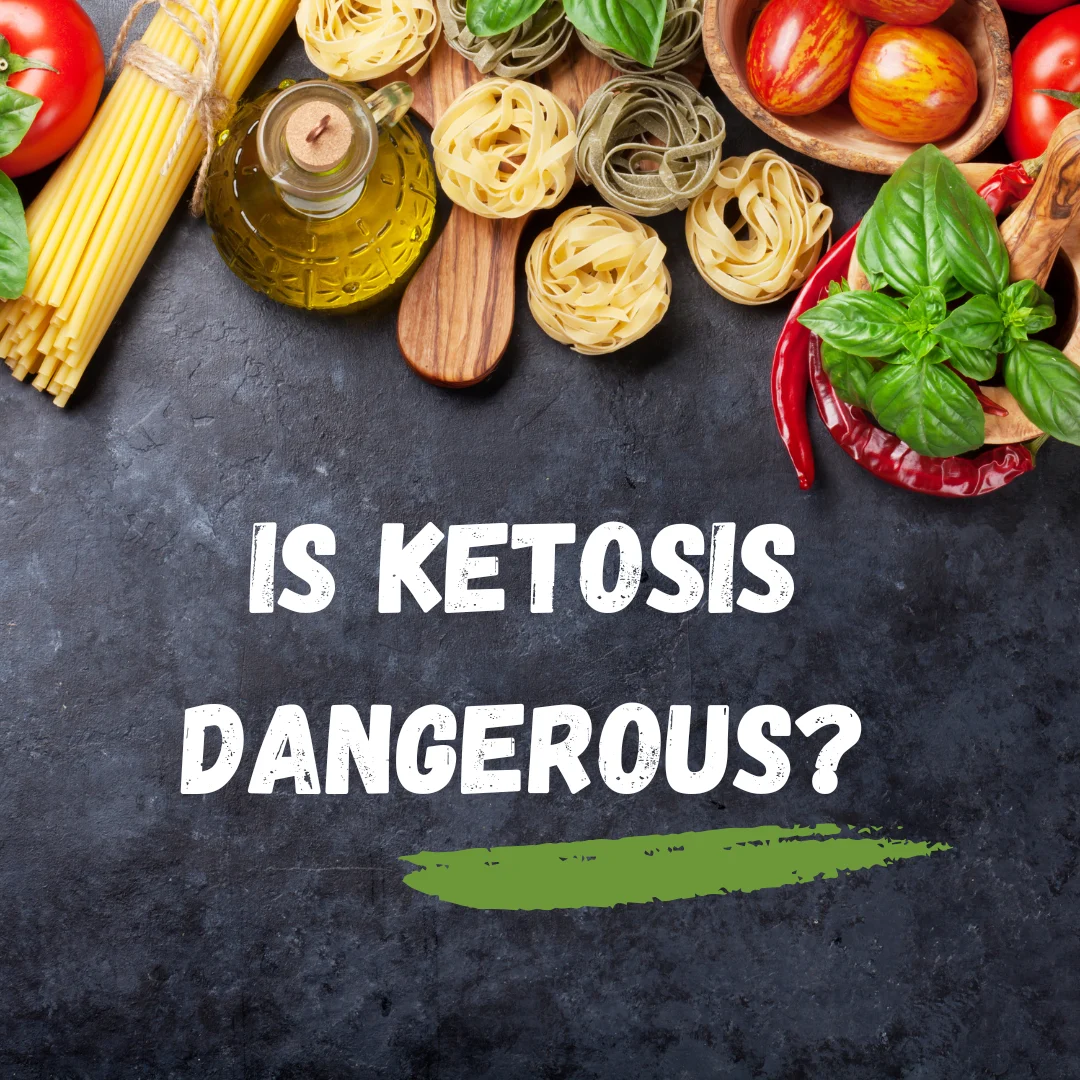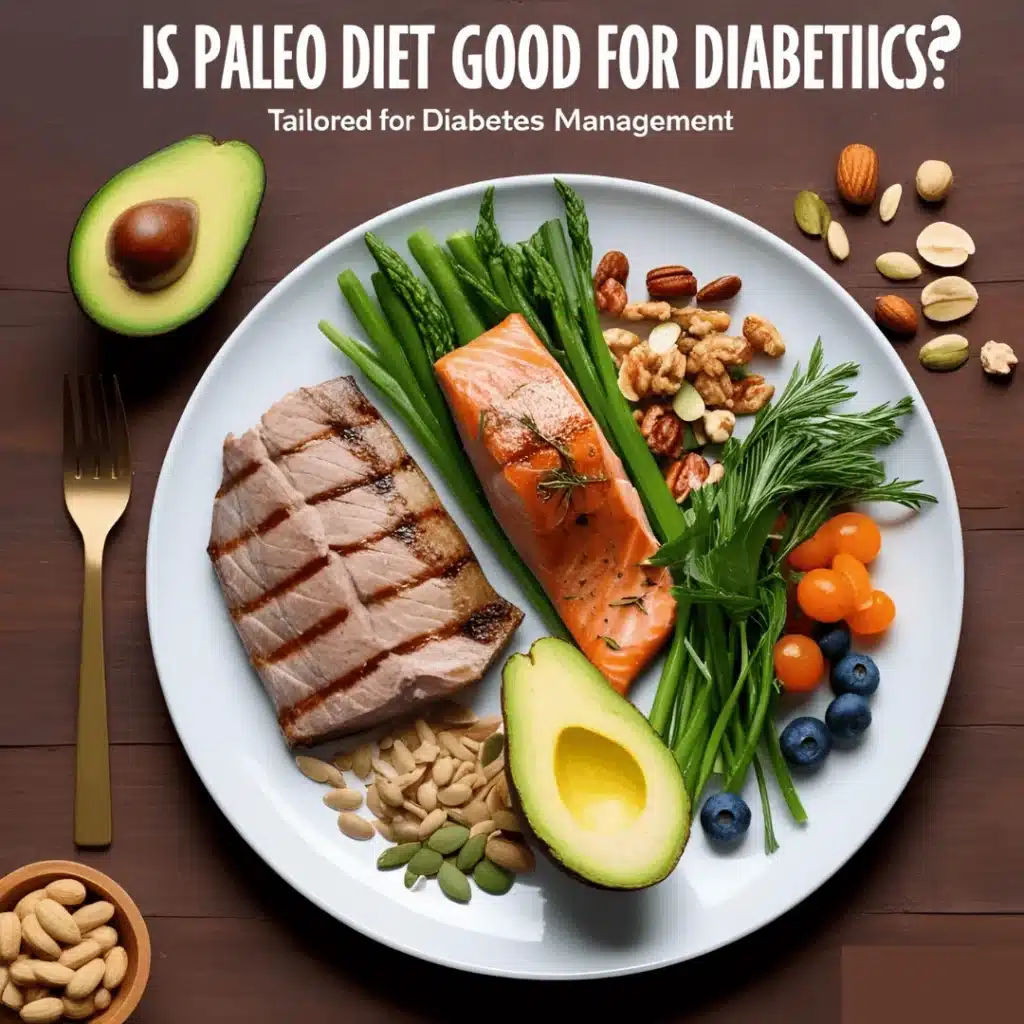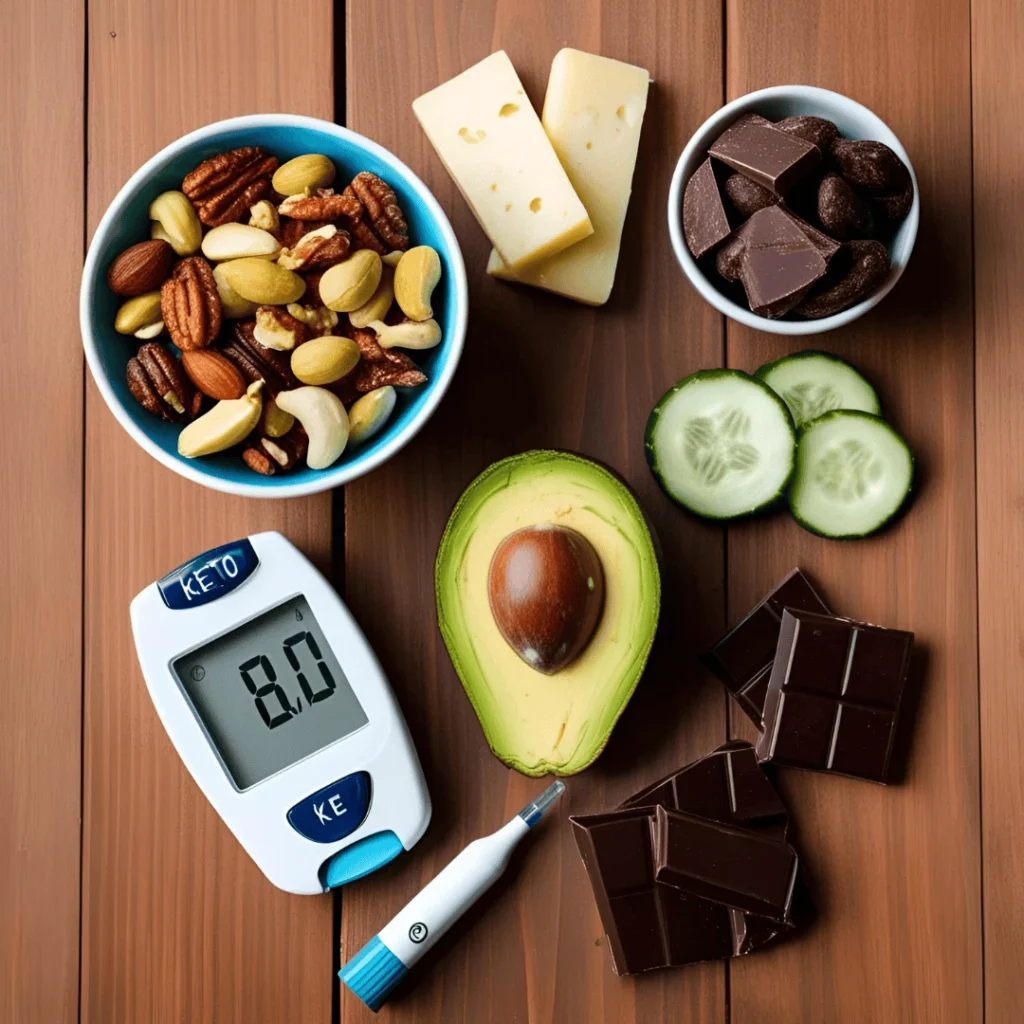Table of Contents
ToggleSummary
Is Ketosis Dangerous? Understanding the Risks and Benefits” offers a comprehensive exploration of ketosis, a metabolic state achieved by reducing carbohydrate intake. The post starts by defining ketosis and explaining how the body enters this state, focusing on the biological process of ketone production. It emphasizes the increasing popularity of ketogenic diets due to their potential health benefits, but questions whether ketosis is inherently dangerous. The blog provides insights into the advantages of ketosis, such as weight loss, improved mental clarity, stabilized blood sugar, and enhanced physical performance, while also highlighting potential risks like the keto flu, nutrient deficiencies, and long-term health concerns.
It further investigates the potential dangers of ketosis, including short-term side effects like headaches, fatigue, and dizziness, as well as long-term risks such as kidney stones and increased cholesterol levels. It also addresses the individuals who should avoid ketosis, including those with specific medical conditions such as liver or kidney disease, pregnant women, and individuals on certain medications. Throughout the post, readers are provided with practical tips on how to safely enter and maintain ketosis, such as gradually transitioning into the diet, monitoring ketone levels, and ensuring a balanced diet with adequate electrolytes and hydration.
Introduction
The ketogenic diet has gained immense popularity in recent years for its potential to aid in weight loss, improve energy levels, and even support brain function. By severely restricting carbohydrates and increasing fat intake, the body enters a state called ketosis, where fat becomes the primary fuel source instead of glucose. However, with its growing adoption, one question looms large: Is ketosis dangerous?
It dig deep into ketosis, exploring its benefits, risks, and how to approach it safely. Whether you are considering starting a ketogenic diet or are curious about its long-term impact on your health, understanding both the benefits and potential drawbacks is crucial. Let’s explore ketosis in detail and answer the burning question, Is ketosis dangerous?
What is Ketosis?
Ketosis is a metabolic state in which the body shifts from using carbohydrates as its primary source of energy to using fat. Under normal circumstances, the body relies on glucose (derived from carbohydrates) to fuel daily activities. However, when carbohydrate intake is significantly reduced, the body begins to break down stored fat into molecules called ketones, which then serve as the new fuel source.
How the Body Enters Ketosis
To enter ketosis, one must drastically reduce carbohydrate intake, typically to less than 50 grams per day. This forces the liver to break down fat into ketones—acetone, acetoacetate, and beta-hydroxybutyrate—enzymes that fuel the brain, muscles, and other tissues in the body. This metabolic shift typically occurs within 2-4 days of adopting a strict low-carb diet.
The Role of the Ketogenic Diet in Achieving Ketosis
The ketogenic diet, or keto diet, is designed to help individuals achieve ketosis by prioritizing fat and protein intake while minimizing carbohydrates. The typical macronutrient breakdown of the ketogenic diet consists of 70-75% fat, 20-25% protein, and only 5-10% carbohydrates. While the primary goal of the ketogenic diet is to reach and maintain ketosis, it has also become a widely used approach for weight loss, managing blood sugar, and improving cognitive function.
How Does Ketosis Affect the Body?
When the body enters ketosis, it undergoes several changes that can impact overall metabolism, energy levels, and mental clarity.
1. Influence on Energy Metabolism
One of the most significant changes that occur in ketosis is the shift in energy metabolism. Instead of burning glucose for energy, the body begins to burn stored fat, which can lead to significant weight loss over time. This process helps reduce body fat percentage and may even help preserve muscle mass.
2. Fat Burning and Weight Loss
By turning fat into the primary energy source, ketosis encourages the body to burn excess fat. This is why many people on the ketogenic diet report weight loss results. As the liver produces ketones, these molecules become an alternative energy source for the brain and body, effectively helping to burn stored fat for energy.
3. Mental Clarity and Cognitive Function
Ketones are an efficient fuel source for the brain, providing enhanced cognitive performance and mental clarity. Many individuals on the ketogenic diet report feeling more focused, with fewer mental fogginess episodes compared to when they were consuming high-carb meals.
4. Appetite Regulation
Ketosis can also impact hunger levels. Ketones have a natural appetite-suppressing effect, which can lead to reduced calorie intake. This is one reason why individuals on the ketogenic diet often find it easier to maintain a calorie deficit, promoting weight loss without the intense feelings of hunger.
5. Impact on Digestion and Metabolism
The body’s digestive system also undergoes changes during ketosis. Since fiber intake often decreases on a ketogenic diet, constipation and other digestive issues can arise. Moreover, ketosis can influence metabolic rate, as the body becomes more efficient in burning fat.
Benefits of Ketosis
Ketosis offers a variety of potential health benefits, especially when it comes to weight loss, mental focus, and managing chronic conditions.
1. Weight Loss and Fat Burning
The primary benefit of ketosis is weight loss. By shifting the body into fat-burning mode, ketosis can lead to substantial reductions in body fat percentage. As the body converts fat into energy, it accelerates fat loss while preserving lean muscle mass, making ketosis an attractive option for those seeking effective weight loss strategies.
2. Improved Mental Focus and Clarity
Ketones provide a more stable and efficient source of energy for the brain than glucose. This can result in increased mental clarity, improved focus, and even enhanced memory. Many individuals who follow the ketogenic diet report feeling more mentally sharp, with less brain fog and improved cognitive function.
3. Stabilized Blood Sugar and Insulin Levels
For individuals with type 2 diabetes or insulin resistance, ketosis may be particularly beneficial. By reducing carbohydrate intake, ketosis helps stabilize blood sugar levels and may improve insulin sensitivity. Some studies have even shown that individuals with diabetes can reduce or eliminate their reliance on medication while following a ketogenic diet.
4. Enhanced Physical Performance
While the ketogenic diet is often associated with weight loss and fat-burning benefits, it can also benefit athletes and those looking to improve physical performance. Ketones are a highly efficient fuel source for prolonged endurance activities. As the body adapts to burning fat for energy, athletes may experience enhanced stamina and better performance in activities like long-distance running, cycling, or even strength training.
5. Other Potential Benefits
Beyond the commonly known benefits, ketosis may also offer additional health benefits, including reduced inflammation, improved cardiovascular health, and potential neuroprotective effects. While more research is needed, some studies suggest that ketosis may help in managing neurological conditions such as epilepsy and even Alzheimer’s disease.
Is Ketosis Dangerous? Potential Risks and Side Effects
While ketosis offers a range of health benefits, it’s important to understand that it is not without its risks. Let’s explore the potential downsides of ketosis and its associated side effects.
1. Short-Term Side Effects (Keto Flu)
One of the most common issues individuals face when starting the ketogenic diet is what’s known as “keto flu.” This collection of symptoms occurs as the body adjusts to burning fat instead of carbohydrates and can include headaches, fatigue, dizziness, nausea, irritability, and difficulty sleeping. While these symptoms are usually temporary and subside after a few days, they can be uncomfortable for new dieters.
2. Nutrient Deficiencies
A strict ketogenic diet often leads to reduced intake of certain nutrient-rich foods, such as fruits, vegetables, and grains. This can result in nutrient deficiencies, particularly in fiber, vitamins, and minerals. To prevent this, individuals should be mindful of their food choices and consider supplementation to maintain a balanced nutrient profile.
3. Kidney Stones
There is some concern that the increased excretion of waste products, such as uric acid, during ketosis can lead to kidney stones. While this risk is more pronounced in individuals who have a history of kidney issues, it’s important to stay hydrated and monitor kidney health while on the ketogenic diet.
4. Increased Cholesterol Levels
Some individuals may experience an increase in cholesterol levels while on the ketogenic diet. While some studies suggest that the rise in cholesterol might not be linked to heart disease, individuals with pre-existing cardiovascular conditions should carefully monitor their lipid profiles and consult with a healthcare provider.
5. Digestive Issues
Due to the low fiber content in a typical ketogenic diet, constipation and other digestive issues can arise. It’s essential to consume adequate fiber from low-carb, high-fiber foods such as leafy greens and non-starchy vegetables to help maintain gut health.
6. Long-Term Health Risks
While ketosis can offer numerous benefits in the short term, the long-term effects of staying in ketosis are still being studied. Prolonged periods of ketosis may impact bone health, liver function, and overall organ health. It’s essential to consult a healthcare provider before engaging in long-term ketosis.
Who Should Avoid Ketosis?
Ketosis isn’t suitable for everyone. Certain individuals should avoid ketosis or consult a healthcare provider before starting the diet.
1. People with Liver or Kidney Diseases
Individuals with liver or kidney diseases may experience adverse effects from the increased metabolic load that comes with ketosis. Since the liver plays a crucial role in ketone production, and the kidneys are responsible for eliminating waste, those with compromised liver or kidney function should avoid a ketogenic diet.
2. Those with a History of Eating Disorders
Individuals with a history of eating disorders should be cautious when considering the ketogenic diet. The restrictive nature of ketosis may trigger unhealthy relationships with food, making it important to prioritize mental health when adopting a new dietary approach.
3. Pregnant or Breastfeeding Women
Pregnant or breastfeeding women should avoid ketosis due to the potential risks to fetal and infant development. The body’s nutritional requirements are heightened during pregnancy and breastfeeding, and a ketogenic diet may not provide sufficient nutrients for both mother and child.
4. Individuals on Specific Medications
Some medications, particularly those for type 1 diabetes, may interact with the ketogenic diet. Individuals taking insulin or other diabetes-related medications should consult with a healthcare provider before starting ketosis.
How to Safely Enter and Maintain Ketosis
If you’re considering the ketogenic diet, there are several strategies to ensure you enter and maintain ketosis safely.
Gradual Transition to Ketosis
Instead of abruptly cutting carbs, it’s advisable to gradually reduce carbohydrate intake. This will help the body adjust to burning fat for fuel without causing significant shock to the system.
Monitoring Ketone Levels
To ensure that your body is in ketosis, use tools like urine strips, blood tests, or breath analyzers to monitor ketone levels. Keeping track of your ketone levels helps ensure that you’re reaping the benefits of ketosis without overdoing it.
Balanced Diet
Maintaining a balanced diet is essential while on the ketogenic diet. Focus on nutrient-dense, whole foods to prevent nutrient deficiencies and keep your body functioning optimally.
Hydration and Electrolyte Balance
Stay hydrated, as ketosis can cause the body to excrete more water and electrolytes. Replenish electrolytes, such as sodium, potassium, and magnesium, to prevent imbalances that can lead to fatigue, muscle cramps, and other issues.
Consultation with a Healthcare Provider
Before starting a ketogenic diet, especially if you have any pre-existing health conditions, it’s crucial to consult with a healthcare provider. A professional can provide guidance and help ensure that ketosis is right for you.
Conclusion
In conclusion, ketosis is a metabolic state that can offer significant health benefits, including weight loss, improved mental clarity, and stabilized blood sugar. However, as with any diet, it’s essential to understand the potential risks and side effects associated with it, such as the keto flu, nutrient deficiencies, and long-term concerns like kidney stones and increased cholesterol. While ketosis is not inherently dangerous, it requires careful management to ensure it’s both safe and effective.
Before embarking on a ketogenic diet, it’s crucial to consult with a healthcare provider, especially if you have pre-existing conditions or concerns. Monitoring ketone levels, ensuring a balanced diet, and staying hydrated are key to achieving ketosis in a safe manner. By approaching ketosis thoughtfully and responsibly, individuals can experience its benefits while minimizing potential risks.
For more information on ketogenic diets, weight loss tips, and healthy living, visit Wise Diets.
FAQs
1. Is ketosis safe for everyone?
No, ketosis is not suitable for everyone. People with liver or kidney disease, those who are pregnant or breastfeeding, or individuals with specific medical conditions should avoid ketosis or seek medical advice before starting.
2. Can you stay in ketosis long-term?
While many people can remain in ketosis long-term, it’s essential to balance the diet with proper monitoring of nutrients and health. Consulting a healthcare provider is recommended for extended periods of ketosis.
3. What are the symptoms of ketosis?
Common symptoms of ketosis include increased thirst, dry mouth, and changes in breath odor (often described as fruity). Some individuals may also experience the “keto flu,” which includes headaches, fatigue, and dizziness.
4. Does ketosis lead to weight loss?
Yes, ketosis can lead to weight loss by encouraging the body to burn fat for energy. However, it is essential to maintain a calorie deficit for significant weight loss results.
5. How do I know if I’m in ketosis?
You can measure your ketone levels using urine strips, blood tests, or breath analyzers to confirm if you’re in ketosis.












